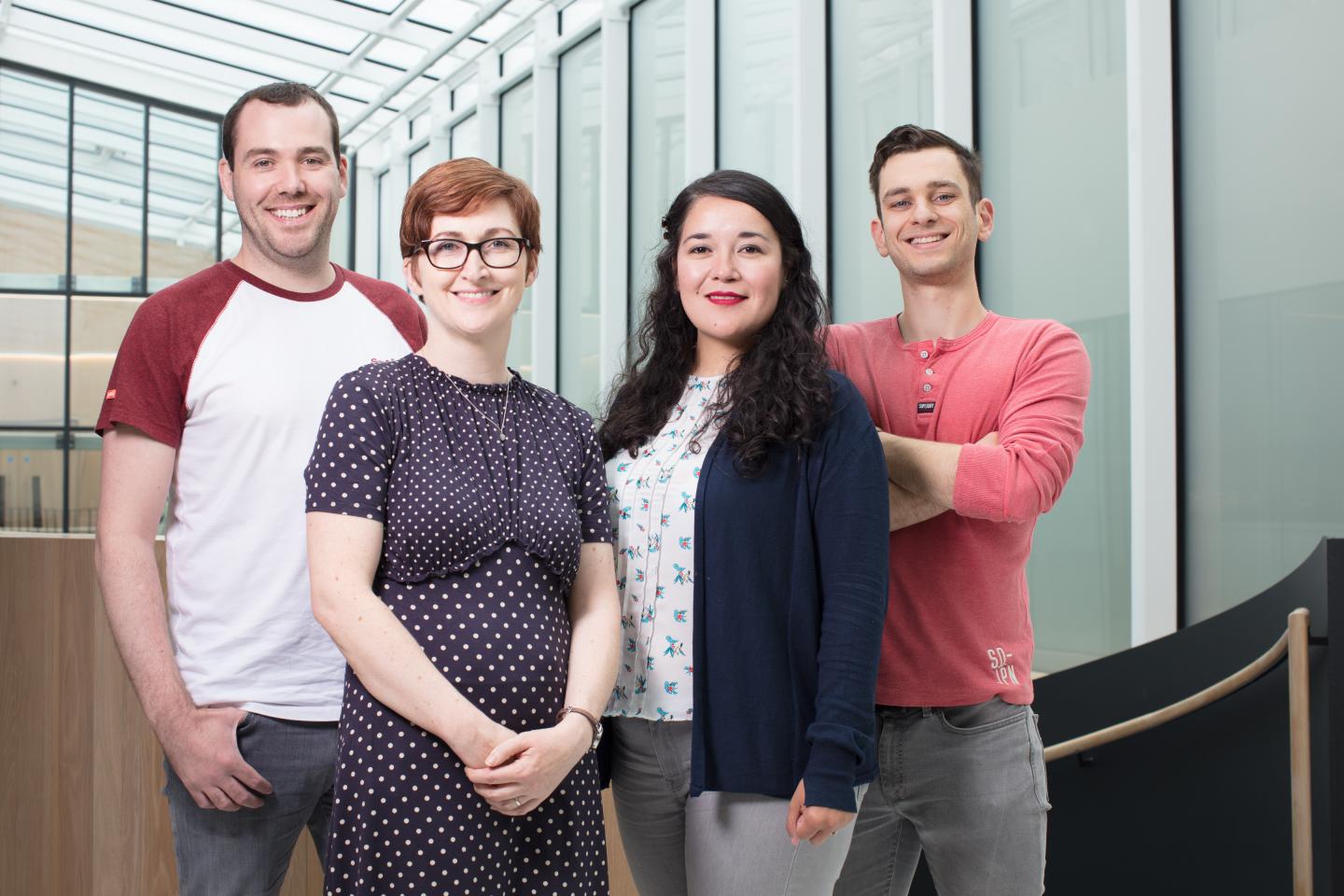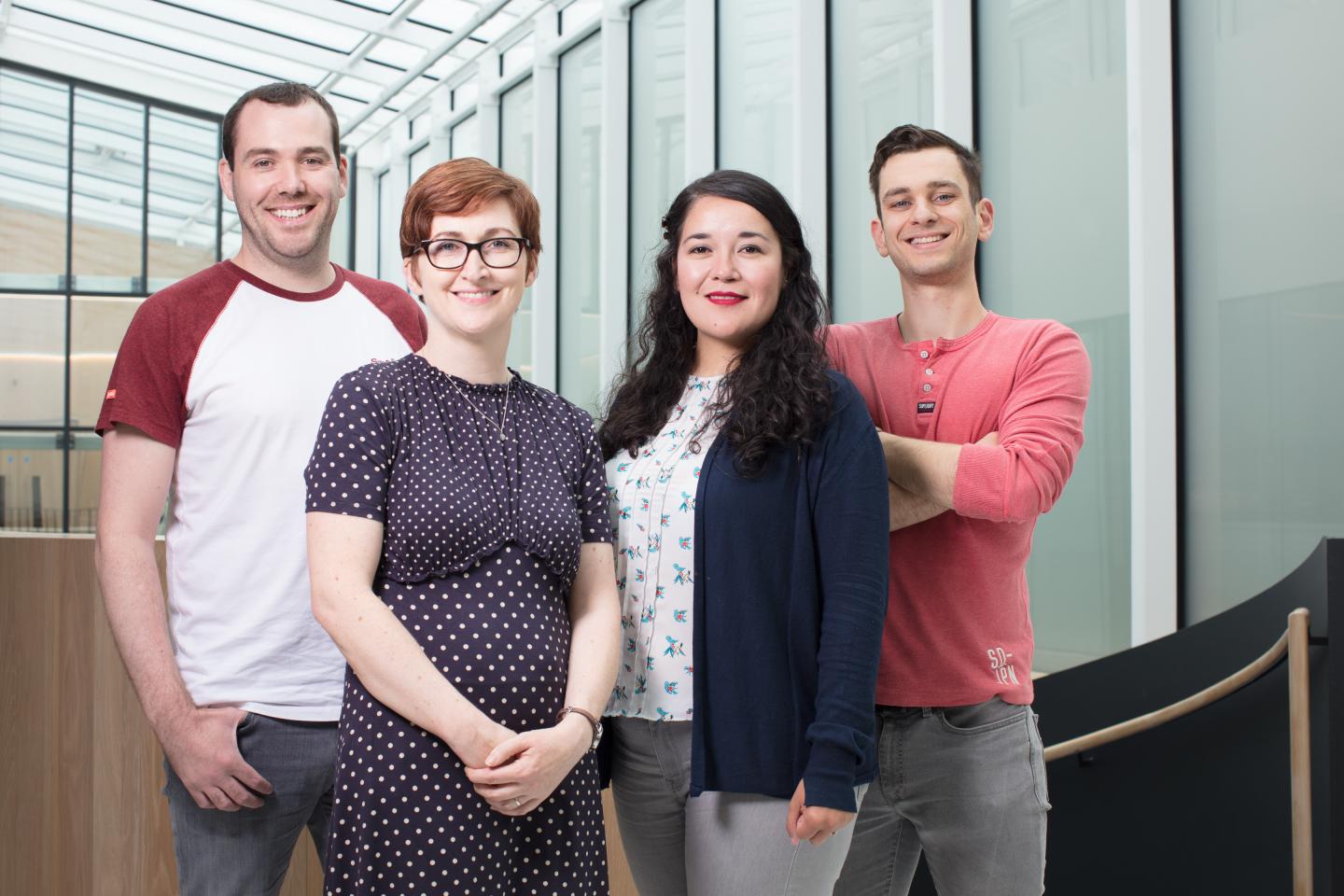
Credit: Patrick Bolger
Researchers at RCSI and Trinity College Dublin have revealed insights into how the body clock controls the inflammatory response, which may open up new therapeutic options to treat excess inflammation in conditions such as asthma, arthritis and cardiovascular disease. By understanding how the body clock controls the inflammatory response, we may be able to target these conditions at certain times of the day to have the most benefit. These findings may also shed light on why individuals who experience body clock disruption such as shift workers are more susceptible to these inflammatory conditions.
The body clock, the timing mechanism in each cell in the body, allows the body to anticipate and respond to the 24-hour external environment. Inflammation is normally a protective process that enables the body to clear infection or damage, however if left unchecked can lead to disease. The new study, led by researchers at Dr. Annie Curtis's Lab at RCSI (Royal College of Surgeons in Ireland) in partnership with Prof. Luke O'Neill's Lab at Trinity College Dublin, is published in the Proceedings of the National Academy of Sciences (PNAS), a leading international multidisciplinary scientific journal.
Dr Annie Curtis, Research Lecturer in the Department of Molecular and Cellular Therapeutics at RCSI and senior author, explained that: "Macrophages are key immune cells in our bodies which produce this inflammatory response when we are injured or ill. What has become clear in recent years is that these cells react differently depending on the time of day that they face an infection or damage, or when we disrupt the body clock within these cells".
Dr. Jamie Early, first author on the study, said: "We have made a number of discoveries into the impact of the body clock in macrophages on inflammatory diseases such as asthma and multiple sclerosis. However, the underlying molecular mechanisms by which the body clock precisely controls the inflammatory response were still unclear. Our study shows that the central clock protein, BMAL1 regulates levels of the antioxidant response protein NRF2 to control a key inflammatory molecule called IL-1β from macrophages."
"The findings although at a preliminary stage, offers new insights into the behaviour of inflammatory conditions such as arthritis and cardiovascular disease which are known to be altered by the body clock", added Dr Early.
Funded by Science Foundation Ireland, the research was undertaken in collaboration between RCSI, Trinity College Dublin and the Broad Institute in Boston, USA.
###
The paper, The Circadian Clock Protein BMAL1 Regulates IL-1β in Macrophages via NRF2, will be published on Monday, August 20, at 3 pm US ET/8pm GMT.
RCSI is ranked among the top 250 (top 2%) of universities worldwide in the Times Higher Education World University Rankings (2018) and its research is ranked first in Ireland for citations. It is an international not-for-profit health sciences institution, with its headquarters in Dublin, focused on education and research to drive improvements in human health worldwide. RCSI is a signatory of the Athena SWAN Charter.
Media Contact
[email protected]
[email protected]
353-140-22196





